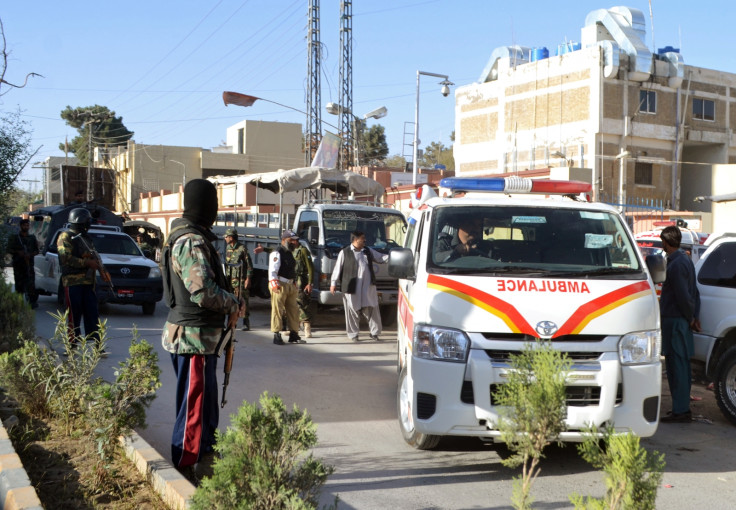Pakistan reviews security in Balochistan after Quetta police academy carnage
Pakistani PM Nawaz Sharif holds top-level security meeting in Quetta, pledges to punish attackers.
Pakistani authorities are reviewing the security situation in restive Balochistan province after 61 people were killed in the deadly terror attack on a police training academy in Quetta on 24 October. Prime Minister Nawaz Sharif held a meeting with high-ranking officials a day after the carnage.
During talks – attended by Pakistan's army chief Raheel Sharif, Interior Minister Chaudhry Nisar, Balochistan Governor Muhammad Khan Achakzai, Balochistan Chief Minister Sanaullah Zehri – the prime minister promised that strong action will be taken against extremist groups operating in the Afghan-Pakistan border region.
Following the meeting on Tuesday (25 October), the Pakistani premier urged for better coordination between law enforcement agencies. Sources quoted by Pakistani daily Dawn said thatthe leaders also discussed the alleged influence of India and Afghanistan in Balochistan province. While the army chief visited the attack site to monitor security arrangements, the prime minister visited hospitals to meet those injured in the attack.
On Monday, three gunmen wearing suicide vests mounted an attack on a police training college in Quetta and opened fire on the residents, mostly cadets. While two of terrorists blew themselves up, a third was killed by security forces during a gun-fight.
Balochistan province has declared three days of mourning for the victims. Islamic State (Isis) and the Pakistani Taliban have claimed responsibility for the attack. However, Pakistani intelligence has blamed locally groomed Lashkar-e-Jhangvi, which is believed to be active in the region and has carried out attacks in the past, for the dastardly onslaught.
Security has been heightened across Quetta, the provincial capital, with police and paramilitary forces conducting clearing out operation in some parts.

© Copyright IBTimes 2024. All rights reserved.






